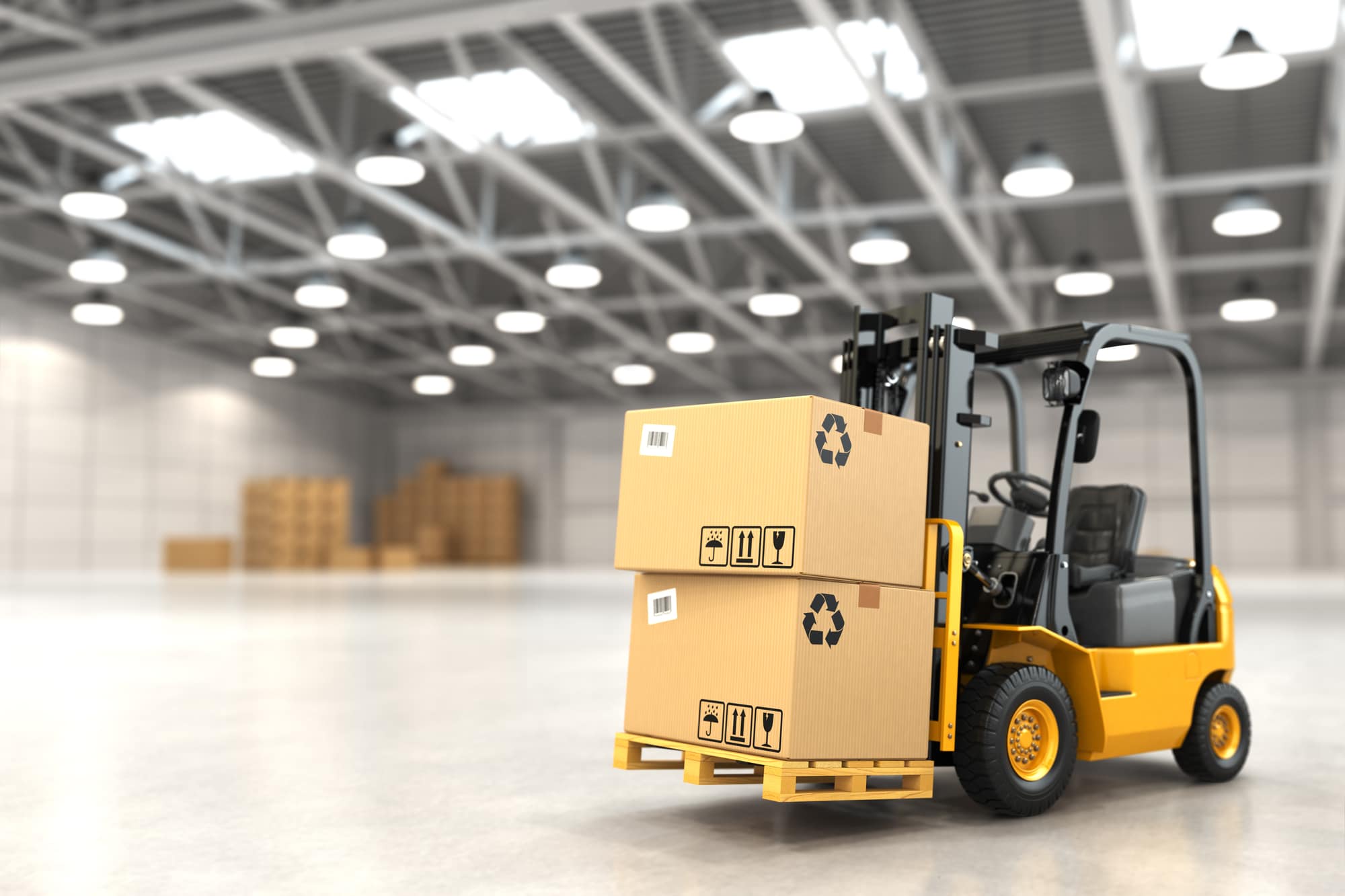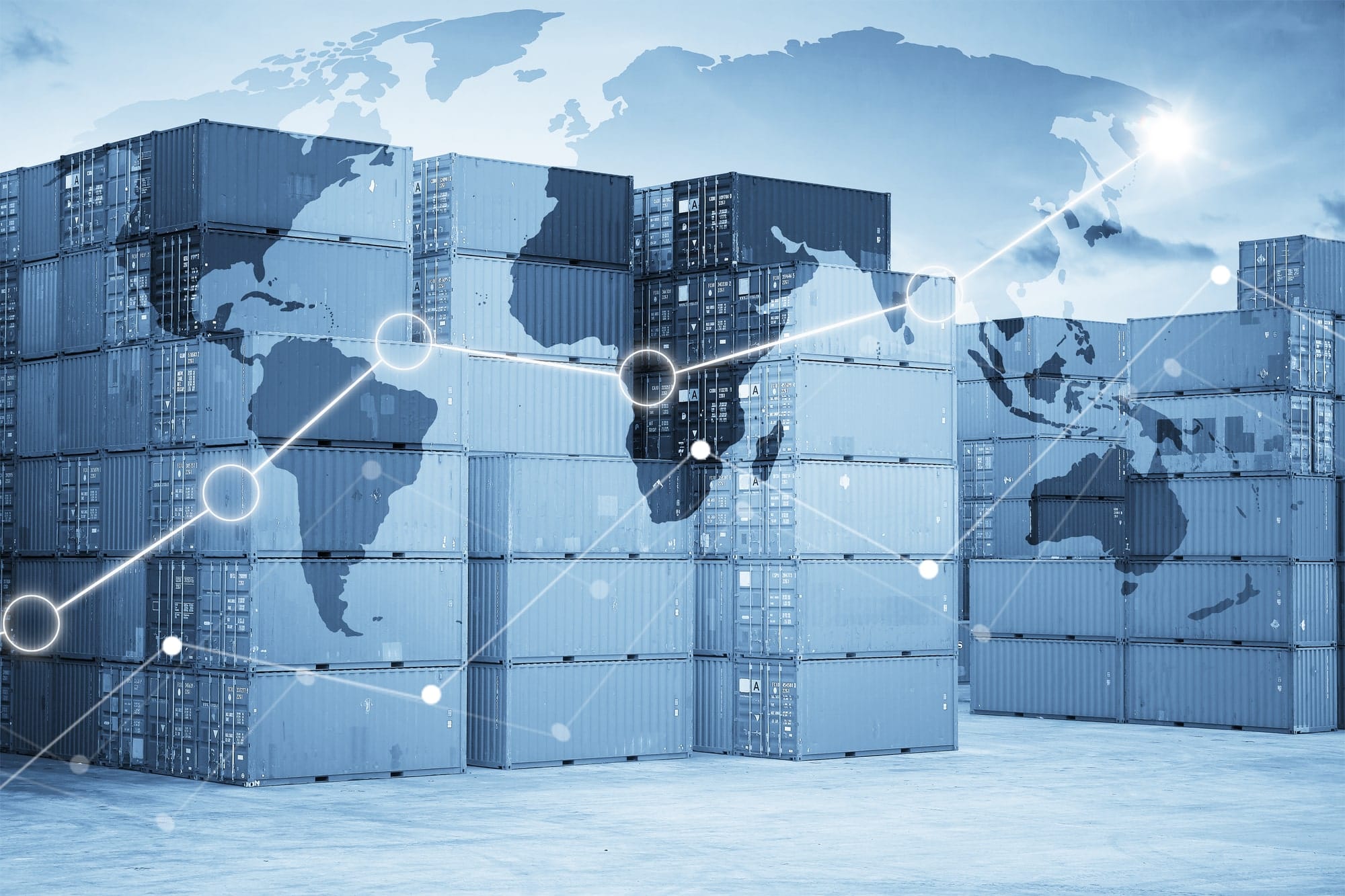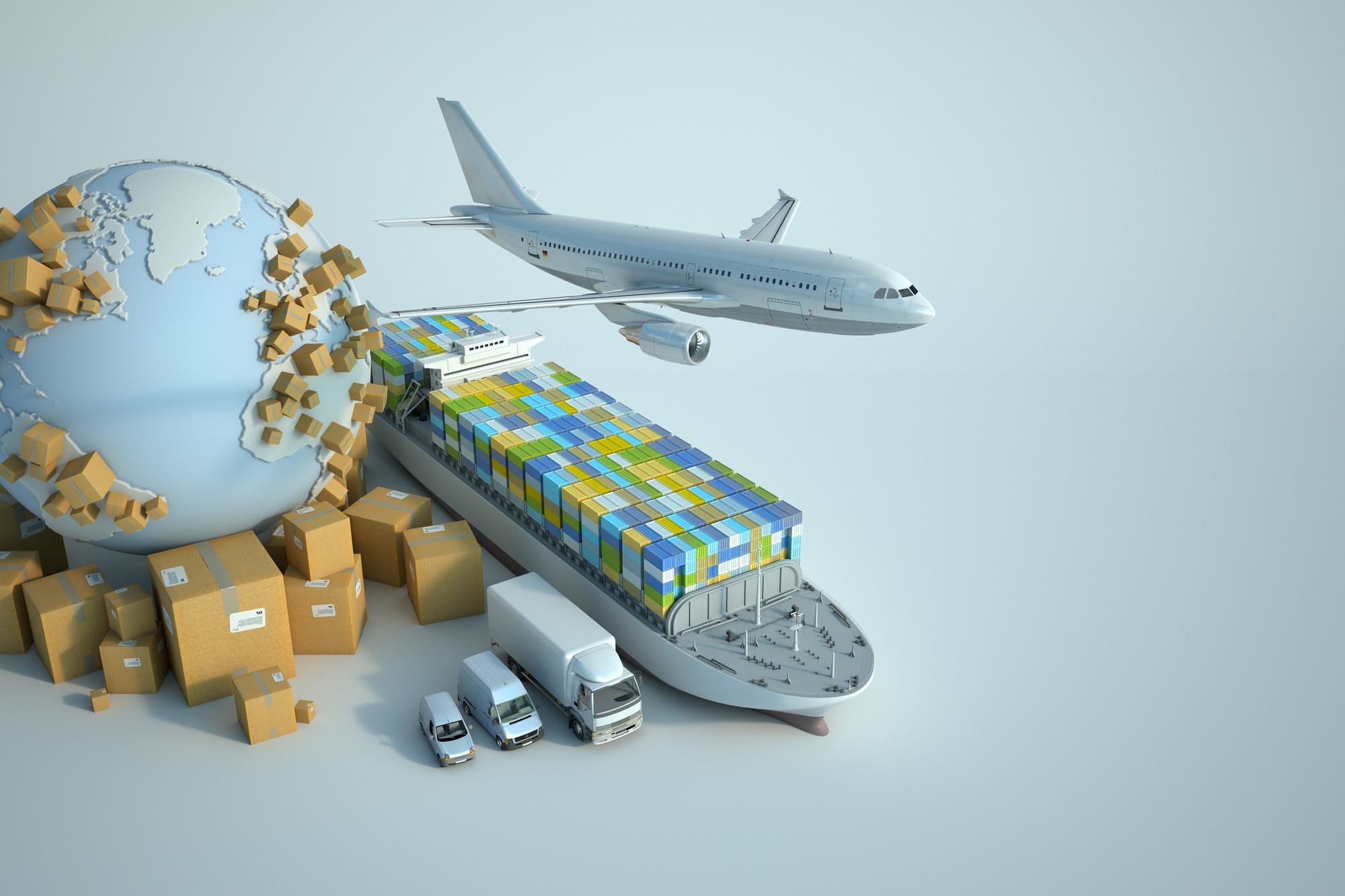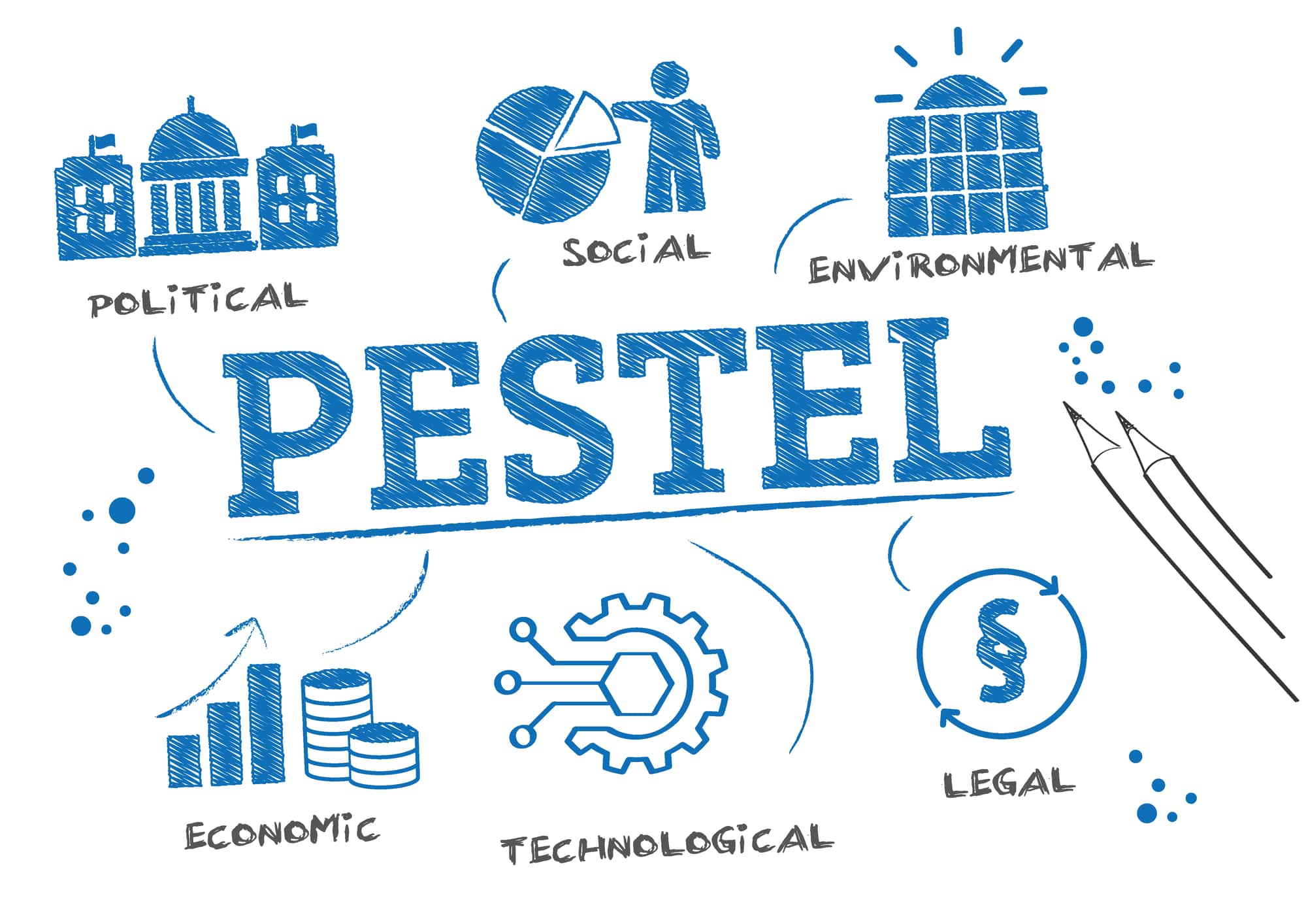Have you ever considered how there are always goods available in the market despite so many people buying them? Shortage of goods doesn’t occur because of an efficient supply chain.
However, to have an efficient supply chain, it is important to have a strong logistics industry. The logistics industry is one of the industries that is hardly talked about.
Although the logistics industry is one of the most important industries because it is responsible for transportation, warehousing, inventory management, packaging, and supply chain management.
Since the logistics industry is responsible for circulating all the goods across the economy, we have decided to conduct a PESTLE Analysis of The Logistics Industry today.
This PESTLE analysis will discuss how various external factors impact the Logistics industry.
Before proceeding further and conducting the PESTLE analysis of the logistics industry, let’s gain some insight into the Logistics industry.

The logistics industry is the industry that is responsible for the provision of goods in the market. It manages and coordinates the flow of goods in the economy. The role of the logistics industry comes into play after manufacturers are done manufacturing the products.
Now these products are to be transported in the markets. Companies in the Logistics industry package the products and distribute them in the market where consumers can buy them. If the Logistics industry didn’t exist, consumers wouldn’t be able to get hold of the products they need.
Besides transporting the products to the market, the Logistics industry also has a role in storing the products in warehouses.
The logistic companies pick up the manufactured products from the factories and store them in warehouses where they are kept at an optimum temperature under tight security. Then when the products are demanded, they are transported from warehouses to the market.
The Logistics industry manages the inventory level in the warehouses by determining the supply and demand of the products. It makes sure that there is a balance between the supply and demand of the products.
The Logistics industry acts as a mediator between manufacturers and consumers. It has links with the market and manufacturers, so it is aware of the demand and supply of the products.
The Logistics industry has a long history. It has always been there. However, the modern Logistics industry came into being after industrialization. After the combustion engines were made, vehicles in the Logistics industry became common.
Later in both World Wars, disruption in the supply chain made people aware of the importance of a reliable supply chain. As a result, an organized Logistics industry ensured a reliable supply chain and well-managed inventory systems.
Over the years, the Logistics industry evolved and embraced technology. Computers, barcode scanning, and GPS tracking make the flow of information fast. As a result, the Logistics industry became more efficient.
Currently, the global logistics industry is worth $10.41 billion and is expected to grow to $14.08 billion in 2028. Moreover, the Logistics industry provides employment to almost 10% of the workforce in developed economies such as China and the UK.
Now that we have discussed the Logistics industry in detail let’s proceed further and discuss what PESTLE analysis is. Businesses use PEST analysis to analyze what external factors impact any business, industry, or country. This PESTLE analysis will discuss how various external factors impact the Logistics industry.

Political Factors That Affect The Logistics Industry
Political factors are the factors that are related to government policies or the political affairs of a country. Political factors have a significant impact on various businesses and industries. Let’s examine how different political factors affect the Logistics industry.
The Logistics industry requires roads and transportation networks to operate. If the government spends on developing infrastructure such as roads, then this would help the Logistics industry in operating. As a result, the efficiency of the Logistics industry would increase.
Moreover, taxes imposed by the government significantly impact the operations of the logistics industry. If the government increases toll taxes and imposes taxes on the logistics industry, companies operating in the Logistics industry might abandon the industry. As a result, the Logistics industry would shrink.
Besides that, political instability impacts the Logistics industry significantly. If a country is experiencing political instability, the demand for goods may fall since people would focus on buying only the necessary goods. The fall in demand for goods would impact the operations of the Logistics industry.
Other than that, geopolitical tensions between countries also impact the Logistics industry. For example, all European countries have currently cut their trade with Russia. In such circumstances, the Logistics industry is suffering badly.

Economic Factors That Affect The Logistics Industry
Economic factors are factors that are associated with an economy. This section of the PESTLE analysis discusses how different macroeconomic variables impact any business or industry. Let’s analyze how various economic factors impact the logistics industry.
Inflation has a serious impact on the Logistics industry. Higher levels of inflation hinder the demand for goods in an economy. Due to this, the operations of the Logistics industry get limited, and the industry suffers.
Similarly, if the interest rate significantly impacts the Logistics industry. Suppose the interest rate rises in an economy. In that case, people will reduce their consumption and deposit their money in the banks. As a result, the demand for goods will fall, and the Logistics industry will suffer significantly.
Besides that, the global economic condition greatly impacts the Logistics industry. If there is a global recession, people are laid off. As a result, the disposable income of people falls.
Moreover, in economic recessions, there is high uncertainty. Due to this, people limit their consumption and prefer to save. Hence, the demand for goods falls, and the Logistics industry experience losses.
Other than that, the exchange rate also impacts the Logistics industry. For example, China’s currency is depreciated against the US dollar. Due to this, the US goods imported to China are relatively expensive.
Suppose China’s currency is further depreciated against the US dollar. People might stop buying US products. This would impact the operations of the Logistics industry negatively.

Social Factors That Affect The Logistics Industry
Social factors analyze how different social and cultural factors impact businesses and industries. In this section, we will look at how multiple social factors affect the Logistics industry.
Consumer behavior impacts the logistics industry significantly. If consumers want speedy deliveries of goods, the Logistics Industry must speed up its processes and try to deliver goods in the shortest tie possible.
Moreover, the demographic trends of various societies significantly impact the Logistics industry. For example, if a country has a high population, the demand for goods will be high.
As a result, this will impact the Logistics Industry positively and help the industry grow.
Furthermore, some societies are risk-averse. In those societies, businesses are insured.
The companies operating in the Logistics industry have to get insured if they operate in risk-averse societies. Insurances cause the cost of operations to increase. This might force companies to abandon the logistics industry.
Other than that, consumer preferences also impact the Logistics industry significantly. For example, Suppose the demand for soft drinks increases in a country.
In that case, the logistics industry must adapt to this demand and transport soft drinks nationwide in chillers and refrigerators. Such changes in consumer preferences can significantly impact the Logistics industry.

Technological Factors That Affect The Logistics Industry
Technological factors are technology and innovation-related factors that impact different industries and businesses. In this section, we will take a look at how various technological factors impact the Logistics Industry.
Technology has a great impact on the Logistics industry. Over the years, many technological developments have taken place that have created a positive impact on the Logistics industry. Automation and robotics have impacted the Logistics industry significantly.
The automated storage and retrieval systems used in the Logistics industry revolutionized the operations of the logistics industry. It increased the efficiency of the Logistics industry.
Moreover, the usage of robotic process automation and autonomous vehicles have reduced the operational costs of the companies in the logistics industry, and they have increased the overall productivity of the Logistics industry.
Other than that, the use of data analytics has made the operations of the Logistic industry more efficient and effective. The usage of data analytics helps Logistics companies to make informed decisions. Moreover, they can predict the demand and supply of goods and prepare in advance.
Furthermore, data analytics help in monitoring the level of inventory. It also helps Logistics companies to optimize their routes for transportation.
Legal Factors That Affect The Logistics Industry
Legal factors take into account the laws that are implemented in a country. This section of the PESTLE analysis discusses how different laws impact any industry. Let’s analyze the impact of legal factors on the Logistics Industry.
Transport laws impact the Logistics Industry significantly. Suppose any country has strict transportation laws, which include strict checking of the trucks and vehicles used by the Logistics industry. In that case, companies might leave the Logistics industry due to the hassle associated with it.
Moreover, labor laws in a country impact the operations of the Logistics industry. If a country has effective labor laws that protect the laborers from discrimination at the working palace and ensures that laborers get the pays they deserve, then more people would look forward to joining the Logistics industry and working in it full-time.
Other than that, if the contract laws in a country are effective, then more logistics companies would be willing to operate in such a country because the Logistics industry usually works on future contracts with consumers.
Suppose there is strict implementation of contract laws. In that case, companies in the Logistics industry will feel protected, and the industry will thrive.

Environmental Factors That Affect The Logistics Industry
Environmental factors are the factors that are associated with the environment. In this section, we will look at how different environmental factors impact the Logistics industry.
Climate change is causing natural disasters to occur quite frequently, due to which road blockages and disruption in the supply chain have become common. Such disruptions in the supply chain associated with environmental factors hurt the Logistics Industry.
Moreover, as awareness about the environment is increasing, people are raising questions about the operations of the Logistics industry since a lot of trucks, planes, and ships are used by the Logistics industry, which contributes significantly to carbon emissions.
The Logistics industry is currently viewed as a major source of carbon emissions. Such a label is not good for the reputation of the Logistics industry.
Other than that, the Logistics industry requires warehouses to store the goods. In the construction of these warehouses, deforestation takes place. Hence, the environment is damaged while constructing the warehouses.
Furthermore, the Logistics industry often uses chillers and refrigerators while transporting frozen goods or drinks. However, refrigerators are a major source of the emission of greenhouse gasses. Hence, the Logistics industry creates a negative impact on the environment.

PESTLE Analysis of The Logistics Industry: Final Word
The Logistics industry is one of the biggest industries. It is worth billions of dollars and provides employment to millions of people across the globe.
The Logistics industry is responsible for transporting goods across the globe. It is also involved in the process of packaging and labeling goods. Moreover, the Logistics industry also has to keep track of the demand and supply of goods so it can supply goods to the consumers without delay.
The Logistics industry has always been there. However, after the Industrial Revolution, the Logistics industry became more organized. Over the years, it evolved, and technology made it more efficient and reliable.
In today’s article, we shed light on the operations of the Logistics industry. After that, we conducted the PESTLE analysis of the logistics industry.
The PESTLE Analysis framework helped us analyze the external factors that impact the Logistics industry. If you enjoyed reading this article, and want to know more about PESTLE analysis, do look at more examples of PESTLE analysis.










